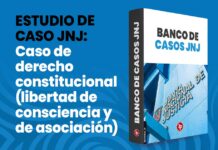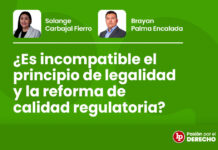Fundamentos destacados: 33. El Tribunal no puede aceptar estos argumentos. Observa, en primer lugar, que desde el inicio de su solicitud a la Comisión, de 14 de enero de 1986, el solicitante se quejó de que «su correspondencia con sus abogados y la Comisión Europea de Derechos Humanos ha sido objeto de injerencias periódicas, al ser abierta, examinada, examinada y censurada por las autoridades penitenciarias». Añadió que se le restringieron los contactos con su abogado y la Comisión porque sabía que «esta correspondencia sería leída (…) y tomada en cuenta por las autoridades penitenciarias». El Tribunal observa, además, que el Gobierno no cuestionó que la correspondencia entrante y saliente del solicitante con su abogado, salvo la relativa a una petición a la Comisión, pudiera examinarse con arreglo al Reglamento Penitenciario. De hecho, el SHHD había informado al solicitante y a su abogado de que esta correspondencia estaba sujeta a la normativa vigente que preveía la apertura y lectura de dichas cartas (véanse los párrafos 13 y 14 supra). En estas circunstancias, el solicitante puede alegar ser víctima de una injerencia en su derecho al respeto de la correspondencia en virtud del artículo 8 (art. 8).
Versión traducida al español
33. The Court cannot accept these arguments. It notes in the first place that from the outset in his application to the Commission of 14 January 1986 the applicant complained that «his correspondence with his solicitors and the European Commission of Human Rights has regularly been subjected to interference in so far as it has been opened, perused, scrutinised and censored by the prison authorities». He added that he was restricted in his contacts with his solicitor and the Commission because he knew that «this correspondence will be read (…) and noted by the prison authorities». The Court further observes that the Government did not dispute that the applicant’s incoming and outgoing correspondence with his solicitor, other than that concerning a petition to the Commission, could be examined under the Prison Rules. Indeed, the SHHD had informed the applicant and his solicitor that this correspondence was subject to the existing rules which provided for the opening and reading of such letters (see paragraphs 13-14 above). In these circumstances, the applicant can claim to be a victim of an interference with his right to respect for correspondence under Article 8 (art. 8).
Versión original en inglés
COUR EUROPÉENNE DES DROITS DE L’HOMME
EUROPEAN COURT OF HUMAN RIGHTS
COURT (CHAMBER)
CASE OF CAMPBELL V. THE UNITED KINGDOM
(Application no. 13590/88)
JUDGMENT
STRASBOURG
25 March 1992
In the case of Campbell v. the United Kingdom,
The European Court of Human Rights, sitting, in accordance with Article 43 (art. 43) of the Convention for the Protection of Human Rights and Fundamental Freedoms («the Convention») and the relevant provisions of the Rules of Court, as a Chamber composed of the following judges:
Mr J. CREMONA, President,
Mr J. PINHEIRO FARINHA,
Mr R. MACDONALD,
Mr A. SPIELMANN,
Mr S.K. MARTENS,
Mr I. FOIGHEL,
Mr R. PEKKANEN,
Mr J.M. MORENILLA,
Sir John FREELAND,
and also of Mr M.-A. EISSEN, Registrar, and Mr H. PETZOLD, Deputy
Registrar,
Having deliberated in private on 28 September 1991 and 28 February
1992,
Delivers the following judgment, which was adopted on the last-
mentioned date:
PROCEDURE
1. The case was referred to the Court on 12 October 1990 by the European Commission of Human Rights («the Commission») and by the Government of the United Kingdom of Great Britain and Northern Ireland («the Government») on 22 November 1990, within the three-month period laid down by Article 32 para. 1 and Article 47 (art. 32-1, art. 47) of the Convention. It originated in an application (no. 13590/88) against the United Kingdom lodged with the Commission under Article 25 (art. 25) on 14 January 1986 by Thomas Campbell, a British citizen.
The Commission’s request referred to Articles 44 and 48 (art. 44, art. 48) and to the declaration whereby the United Kingdom recognised the compulsory jurisdiction of the Court (Article 46) (art. 46), and the Government’s application to Article 48 (art. 48).
[Continúa…]
![Disminuir la velocidad de su vehículo por breves segundos con la finalidad de ingresar al carril derecho, no configura un riesgo prohibido al no encuadrar en ninguna infracción de tránsito imputada, por lo que no cumple la estructura típica del delito de lesiones culposas agravadas por infracción de reglas de tránsito [RN 246-2025, Lima, ff. jj. 26, 27]](https://img.lpderecho.pe/wp-content/uploads/2025/07/JUEZ-FIRMANDO-DOCUMENTO-LPDERECHO-218x150.jpg)

![Aunque el «cerdo» es un animal de granja, no está excluido de su calificación como un «animal vertebrado doméstico», por lo que se encuentra comprendido dentro del ámbito de protección frente a actos de crueldad (Ley 30407) [Casación 1950-2024, Ica, f. j. 4]](https://img.lpderecho.pe/wp-content/uploads/2025/07/CERDITO-CORTE-SUPREMA-LPDERECHO-218x150.jpg)
![Declaran infundado pedido de suspensión temporal de actividades de recaudación de peaje de la concesión Línea Amarilla [Exp. 00021-2019-108]](https://img.lpderecho.pe/wp-content/uploads/2024/04/mazo-justicia-juez-jueza-defensa-civil-penal-juicio-LPDerecho-218x150.jpg)
![TC declara inconstitucional ordenanzas municipales que permiten multar y remolcar autos mal estacionados [Expediente 00002-2023-PI/TC]](https://img.lpderecho.pe/wp-content/uploads/2025/07/GRUA-AUTO-DEPOSITO-LPDERECHO-218x150.jpg)
![¿Constituye delito afirmar «Viva el presidente Gonzalo, el único que hizo temblar al Congreso»? La apología al terrorismo no exige que se haga «referencia mínima a los actos subversivos» cometidos por el condenado por terrorismo [RN 387-2024, Nacional, f. j. 7.4]](https://img.lpderecho.pe/wp-content/uploads/2024/09/facebook-condena-sujeto-suplantado-LPDERECHO-218x150.jpg)

![Ley Orgánica del Registro Nacional de Identificación y Estado Civil (Ley 26497) [actualizada 2025]](https://img.lpderecho.pe/wp-content/uploads/2025/05/Ley-organica-del-registro-nacional-de-identificacion-y-estado-civil1-LPDERECHO-218x150.jpg)











![¿Qué es el mejor derecho de propiedad? [ACTUALIZADO 2025]](https://img.lpderecho.pe/wp-content/uploads/2021/07/Que-es-el-mejor-derecho-de-propiedad-LPDerecho-218x150.png)
![¿Qué es la «acción reivindicatoria» y cuáles son sus requisitos? (artículo 927 del Código Civil) [ACTUALIZADO 2025]](https://img.lpderecho.pe/wp-content/uploads/2020/08/Acci%C3%B3n-reivincatoria-LP-218x150.png)


![¿Puede una negociación colectiva tener más de un producto negocial? [Informe Técnico 001191-2025-Servir-GPGSC]](https://img.lpderecho.pe/wp-content/uploads/2024/06/servir4-LPDERECHO-218x150.jpg)



![Un adecuado y transparente proceso de nombramiento y selección de los miembros del Tribunal Constitucional constituye requisito indispensable a fin de garantizar la independencia y la autonomía de este órgano supremo (caso Disolución del Congreso) [Exp. 0006-2019-CC/TC, f. j. 166]](https://img.lpderecho.pe/wp-content/uploads/2023/05/tribunal-constitucional-tc-precedente-LPDerecho-218x150.png)

![Lineamientos para presentar escritos en mesas de partes de las Salas Supremas [Resolución Administrativa 000228-2025-CE-PJ]](https://img.lpderecho.pe/wp-content/uploads/2025/07/MESAS-PARTES-SALAS-SUPREMAS-LPDERECHO-218x150.jpg)

![«Salud mental en tu cole»: aprueban plan de salud mental en instituciones educativas [Decreto Supremo 012-2025-SA]](https://img.lpderecho.pe/wp-content/uploads/2023/03/escolares-primaria-colegio-salon-clases-educacion-LPDerecho-218x150.png)
![Reglamento de la Ley 30364 (Decreto Supremo 009-2016-MIMP) [actualizado 2025]](https://img.lpderecho.pe/wp-content/uploads/2024/07/Reglamento-de-la-Ley-30364-LPDERECHO-218x150.jpg)

![Código Procesal Penal peruano [actualizado 2025]](https://img.lpderecho.pe/wp-content/uploads/2024/02/VENTA-CODIGO-PENAL-BANNER-POST-TAPA-DURA-LPDERECHO-218x150.jpg)
![Reglamento sobre encuestas electorales durante los procesos electorales [Resolución 0107-2025-JNE]](https://img.lpderecho.pe/wp-content/uploads/2025/05/REGLAMENTO-ENCUESTAS-ELECTORALES-LPDERECHO-1-218x150.jpg)
![Diseño de la cédula de sufragio para la Consulta Popular de Revocatoria del Mandato de Autoridades Municipales 2025 [Resolución Jefatural 000031-2025-JN/ONPE]](https://img.lpderecho.pe/wp-content/uploads/2025/05/DISENO-CELULA-SUFRAGIO-REVOCATORIA-LPDERECHO-218x150.jpg)





![[VIDEO] Juez propone que todos los delitos se tramiten en unidades de flagrancia, sin excepción](https://img.lpderecho.pe/wp-content/uploads/2025/05/DELITOS-PLANTEA-TABOA-LPDERECHO-218x150.jpg)
![[VIDEO] Hay jueces que rechazan cautelares porque «el caso es complejo», advierte Giovanni Priori en LP](https://img.lpderecho.pe/wp-content/uploads/2025/05/JUECES-RECHAZAN-CAUTELARES-GIOVANNI-LPDERECHO-218x150.jpg)
![[VIDEO] Pedro Castillo podría buscar asilo político si enfrenta el juicio en libertad, advierten Benji Espinoza y Elio Riera](https://img.lpderecho.pe/wp-content/uploads/2025/05/PEDRO-CASTILLO-ASILO-ABOGADOS-LPDERECHO-218x150.jpg)


![EXP. N.° 0022-2009-PI/TC LIMA GONZALO TUANAMA TUANAMA Y MÁS DE 5000 CIUDADANOS SENTENCIA DEL TRIBUNAL CONSTITUCIONAL En Lima, a los 09 días del mes de junio de 2010, el Tribunal Constitucional en sesión de Pleno Jurisdiccional, con la asistencia de los magistrados Mesía Ramírez, Beaumont Callirgos, Vergara Gotelli, Landa Arroyo, Calle Hayen, Eto Cruz y Álvarez Miranda, pronuncia la siguiente sentencia con los fundamentos de voto de los magistrados Vergara Gotelli y Landa Arroyo, que se agregan. ASUNTO Demanda de Inconstitucionalidad interpuesta por Gonzalo Tuanama Tuanama, en representación de más de 5000 ciudadanos contra el Decreto Legislativo N.° 1089. DEMANDA Y CONTESTACIÓN a) Demanda contra el Decreto Legislativo N.° 1089, que regula el Régimen Temporal Extraordinario de Formalización y Titulación de Predios Rurales Con fecha 01 de julio de 2009, se interpone demanda de inconstitucionalidad contra el Decreto Legislativo N.° 1089, que regula el Régimen Temporal Extraordinario de Formalización y Titulación de Predios Rurales, publicada en el diario oficial El Peruano el 28 de junio de 2008. Los demandantes refieren que “'sin entrar al fondo del contenido de la norma”, ésta fue promulgada sin efectuar ninguna consulta previa e informada a los pueblos indígenas, tal como lo ordena el Convenio 169 de la Organización Internacional De Trabajo (OIT), afectándose con ello los derechos fundamentales de los pueblos Indígenas, como el derecho a la consulta previa y el derecho colectivo al territorio ancestral, establecidos en los artículos 6, 15, 17 del mencionado convenio. De igual forma, expresan que no se tomaron en cuenta los artículos 19, 30 y 32 de la Declaración de las Naciones Unidas sobre los Derechos de los Pueblos Indígenas (DNUDPI) aprobado por la Asamblea General de la Organización de Naciones Unidas. Alegan que con dicha norma se afectan otros derechos establecidos en el Convenio N.° 169, como el derecho sobre las tierras de los pueblos indígenas (artículos 13 al 19), en el considerando que no se tomaron en cuenta medida que garanticen la protección de sus derechos de propiedad y posesión. Refieren que se afecta también el derecho a la libre determinación de las comunidades nativas, previsto en el artículo 17 del Convenio, que declara el respeto de sus formas tradicionales de transmisión de sus territorios. Por último, alegan que se estaría vulnerando lo previsto en el artículo 19 del Convenio en cuanto se afecta el derecho al desarrollo de políticas agrarias adecuadas para los pueblos indígenas. [Continúa...] Descargue la resolución aquí](https://img.lpderecho.pe/wp-content/uploads/2023/01/Logo-LP-con-fondo-guinda-LPDERECHO-1068x561.png)


![Si el acusado de exaltar por escrito a Abimael Guzmán aduce que le hackearon su cuenta de Facebook, debe probar tal hecho y ello no significa una inversión en la carga de la prueba, tanto más si la Fiscalía presentó el acervo probatorio sobre la autoría del texto [RN 972-2024- CSNJ Penal Especializada, ff. jj. 8-9] redes sociales y facebook](https://img.lpderecho.pe/wp-content/uploads/2017/10/Facebook-LP-218x150.jpg)
![URGENTE: Sala inaplica Ley 32330 (que dispone juzgar a adolescentes como adultos) por contravenir el Convenio sobre los Derechos del Niño [Exp. 01962-2025-1, f. j. 7]](https://img.lpderecho.pe/wp-content/uploads/2025/07/Sala-inaplica-Ley-32330-2-LPDerecho-218x150.png)
![El art. 54 del CPP asume implícitamente que durante la audiencia de juicio oral no cabe la recusación, ya que solo regula que si luego de iniciar la audiencia el juez advierte (por sí o por intermedio de las partes) un hecho constitutivo de inhibición deberá declararla de oficio [Recusación 7-2025, Suprema, f. j. 3]](https://img.lpderecho.pe/wp-content/uploads/2024/03/Betssy-Chavez-Poder-Judicial-LPDerecho-324x160.jpg)
![¡Atención, sector público! Aprueban requisitos para la entrega del aguinaldo por Fiestas Patrias [DS 139-2025-EF] Dinero](https://img.lpderecho.pe/wp-content/uploads/2021/11/dinero-sueldo-soles-gratificacion-aguinaldo-bono-cts-normas-legales-LPDerecho-100x70.png)

![Código Penal peruano [actualizado 2025]](https://img.lpderecho.pe/wp-content/uploads/2024/05/VENTA-CODIGO-PENAL-LPDERECHO-100x70.jpg)
![Multan a Listo con más de S/220 000 por revisar pertenencias de cliente sin causa justificada [Res. Final 1018-2025/CC2]](https://img.lpderecho.pe/wp-content/uploads/2025/07/caso-listo-discriminacion-revision-injustificada-pertenencias-cliente-LPDerecho-100x70.jpg)
![¿Qué es el mejor derecho de propiedad? [ACTUALIZADO 2025]](https://img.lpderecho.pe/wp-content/uploads/2021/07/Que-es-el-mejor-derecho-de-propiedad-LPDerecho-324x160.png)
![¿Puede una negociación colectiva tener más de un producto negocial? [Informe Técnico 001191-2025-Servir-GPGSC]](https://img.lpderecho.pe/wp-content/uploads/2024/06/servir4-LPDERECHO-100x70.jpg)

![¿Qué es la «acción reivindicatoria» y cuáles son sus requisitos? (artículo 927 del Código Civil) [ACTUALIZADO 2025]](https://img.lpderecho.pe/wp-content/uploads/2020/08/Acci%C3%B3n-reivincatoria-LP-100x70.png)

![El art. 54 del CPP asume implícitamente que durante la audiencia de juicio oral no cabe la recusación, ya que solo regula que si luego de iniciar la audiencia el juez advierte (por sí o por intermedio de las partes) un hecho constitutivo de inhibición deberá declararla de oficio [Recusación 7-2025, Suprema, f. j. 3]](https://img.lpderecho.pe/wp-content/uploads/2024/03/Betssy-Chavez-Poder-Judicial-LPDerecho-100x70.jpg)
![¿Qué es el mejor derecho de propiedad? [ACTUALIZADO 2025]](https://img.lpderecho.pe/wp-content/uploads/2021/07/Que-es-el-mejor-derecho-de-propiedad-LPDerecho-100x70.png)




![¿El plazo para interponer queja de derecho es de 3 o 5 días? [Exp. 00070-2014-PA/TC]](https://img.lpderecho.pe/wp-content/uploads/2019/04/POST-Plazo-para-interponer-queja-LPDerecho-324x160.png)